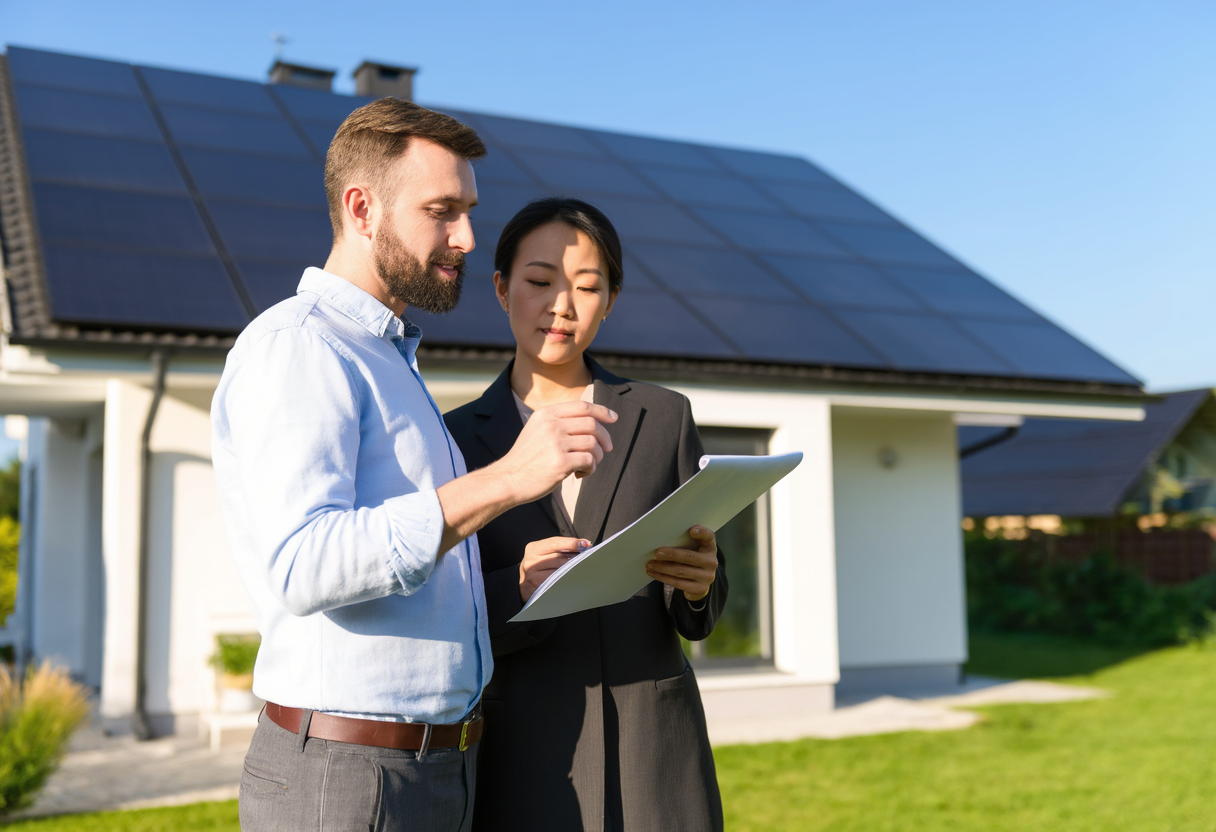Solar Leasing vs. Buying: Which Option is Best for You?
With an increasing number of homeowners considering solar energy, the decision between solar leasing and buying has become crucial. This article explores the foundational differences, financial implications, and practical considerations between solar leasing and purchasing solar panels outright. We aim to equip readers with the knowledge needed to make a sound energy investment.
Distinguishing Solar Leasing from Buying
The choice between solar leasing and buying solar panels is fundamental for those exploring renewable energy solutions. Solar leasing entails a third-party company installing solar panels on your home while you pay a monthly fee. Conversely, buying involves upfront costs—though this may lead to longer-term savings. Understanding this difference is essential as it dictates your financial responsibility over time. With solar leasing, maintenance responsibilities typically lie with the leasing company, offering users an advantageous hands-off approach. On the other hand, owning solar panels means taking on responsibilities for repairs and maintenance but also reaping the benefits of tax incentives. Both options have their merits, but pinpointing the right choice is largely dependent on your financial situation and future energy needs.
Analyzing the Financial Investment
Financial implications vary immensely between solar leasing and purchasing. For homeowners opting for solar leasing, initial costs are minimal, making it an attractive route. Typically, the monthly lease payments are lower than traditional monthly utility expenses, translating to immediate savings. However, long-term dependence on leasing companies could be more expensive than buying outright due to compounding costs associated with the lease agreement. In contrast, purchasing solar panels can seem daunting due to the upfront investment, but it leads to increased savings and potential revenue from selling excess energy back to the grid. Homeowners should conduct a cost-benefit analysis that factors in their financial situation, energy consumption patterns, and potential growth in energy costs. Thus, determining the financial viability hinges on understanding individual usage rates and long-term objectives.
Impact on Home Value and Selling
The decision to lease or purchase solar panels can substantially impact your home’s market value. Generally, homes equipped with owned solar systems are perceived favorably in the real estate market, potentially fetching higher resale prices. In contrast, leased systems might deter some buyers, who could be hesitant about assuming existing lease obligations. This aspect is crucial for those planning to sell their homes in the near future. Furthermore, the professional evaluation of properties with solar energy installations indicates a trend toward home value appreciation, especially in areas with supportive renewable energy policies. Therefore, being informed about the potential long-term impacts is essential for current homeowners and future sellers alike.
How Solar Leasing Influences Energy Costs
When it comes to energy costs, both solar leasing and owning solar panels can result in significant savings, although the pathways differ. Solar leasing allows users to benefit from renewable energy production without the burden of ownership. Lease agreements typically include fixed payments, making budgeting predictable. On the other hand, those who buy solar installations generally enjoy free energy after paying off the initial costs. It's essential to consider local regulations and energy rates—peculiarities that could influence cost-effectiveness for leasing versus buying. As energy prices fluctuate, the cost-saving advantages provided by solar leasing or purchasing are crucial. With a well-thought-out approach, homeowners can effectively leverage either option to ensure they minimize costs while embracing sustainable energy.
User Experience with Solar Options
User experiences differ significantly between those who choose solar leasing and those who opt to purchase solar panels. Many leasing users evoke a sense of ease and security, given that maintenance and repairs become the responsibility of the leasing company. This hands-off experience can free homeowners from dealing with the complexities of solar technology. In contrast, owners often report pride in having full ownership of their systems, balancing the responsibilities of maintenance with the rewards of energy independence. Engaging with solar solutions can empower users, and many find that local support from solar companies enhances their experience. Knowing that they play an active role in the transition towards green energy fosters a deeper connection to their system. Ultimately, understanding these varied experiences proves valuable for consumers navigating their options.
Conclusion: Making the Right Choice
Deciding between solar leasing and purchasing solar panels requires careful consideration of financial implications, potential home value impacts, and user experiences. As more homeowners consider renewable energy systems, being informed about the unique benefits and challenges associated with each option becomes vital. Evaluating your energy needs, financial situation, and long-term goals should guide your decision. Solar leasing offers immediate affordability and simplicity, while purchasing culminates in ownership and potential long-term savings. In the end, both avenues support the transition to renewable energy, making them worthy options. For those looking to maximize savings while committing to sustainable practices, understanding solar leasing and buying is the key to a brighter energy future.
seo_configs
